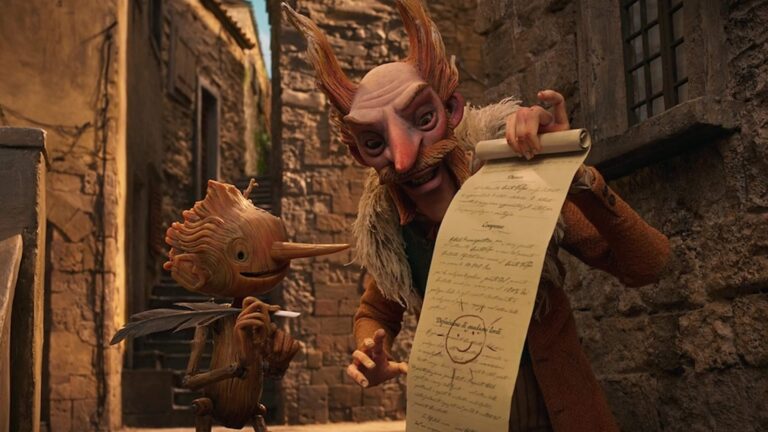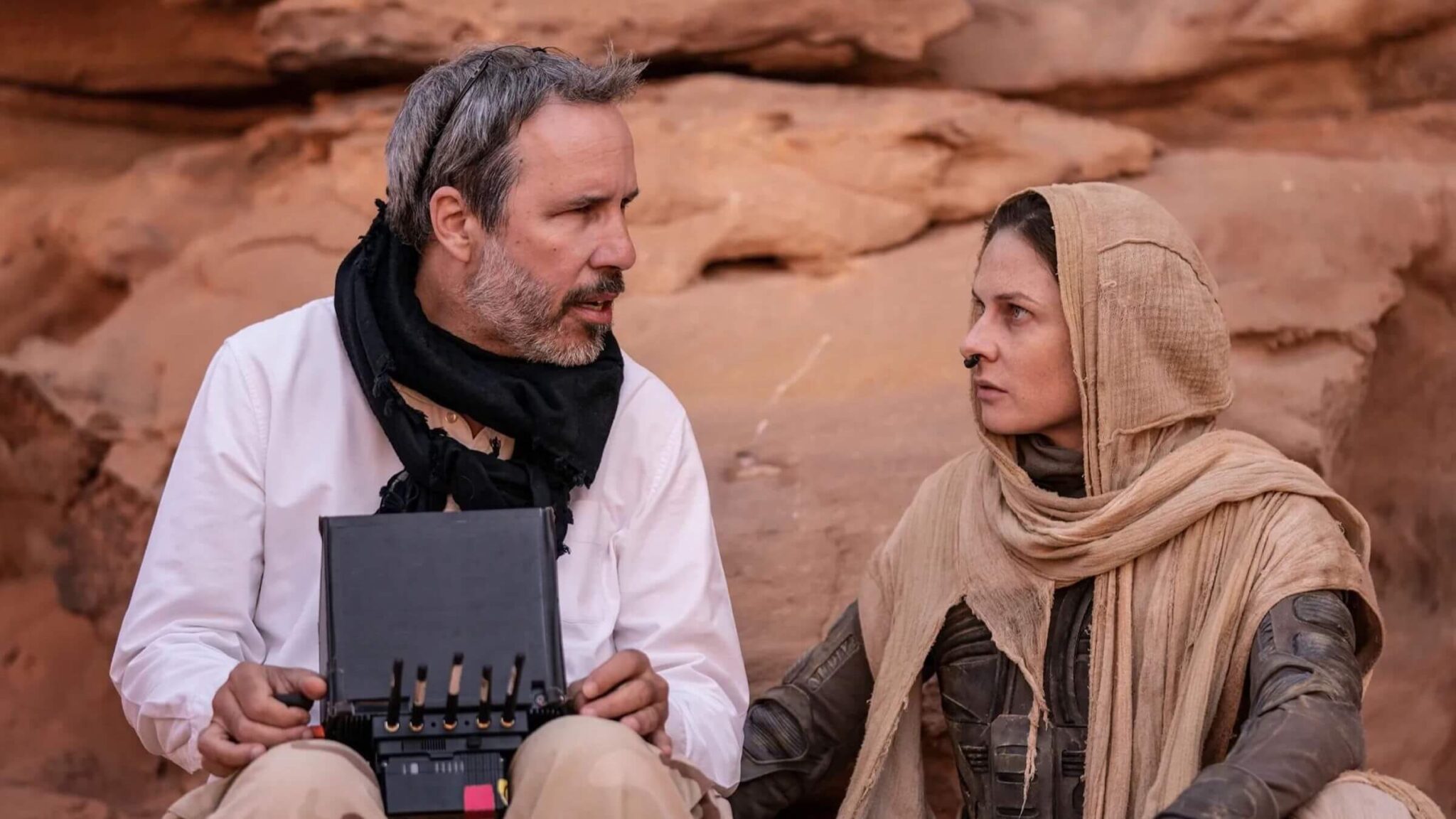
It's every screenwriter's question: Why does it take so long for the contacts you've made in Hollywood to read your script?
We've all heard the prescient Tom Petty and the Heartbreakers' anthem "The Waiting," where Tom croons, "The waiting is the hardest part. Every day you get one more yard. You take it on faith, you take it to the heart. The waiting is the hardest part. Yeah, the waiting is the hardest part."
Nowhere is that more true than in Hollywood, when a seemingly endless waiting game is as predictable as a sunrise.
Screenwriters know the drill: You spend months upon months trying to make connections within Hollywood. You write endless query emails and send them out to those that you think would love your type of cinematic story.
Read ScreenCraft's Writing the Perfect Query Letter for Your Scripts!
You've gone to film festivals and writing conferences to find opportunities to connect with other screenwriters, industry insiders, meet and greet, and refine your pitch.
Read ScreenCraft's How to Network & Pitch at Pitch Fests, Film Festivals, and Industry Events!
And you've played a game of six degrees of separation to find anyone in your life connected to the film and television industry in any way, shape, or form. How many other screenwriters could your network know? How many screenwriters and scripts are you competing with?
Read Screencraft's Maps Screenwriters Can Use to Build Their Industry Network!
All that work has paid off, and you're excited to connect with industry insiders with some name recognition or notable credits. You've been lucky enough to have the opportunity to send them your script. “Yes,” you think, you’re finally receiving the recognition of a working screenwriter.
"Yeah, I'd love to take a look. Send it over," they said.
"Sure, I can check it out and give you some feedback. I’m always willing to help a screenwriter out," they offered.
You're excited; being a screenwriter can be lonely, and it looks as though your screenplay is about to land in important hands. Someone is finally listening. You finally have some forward momentum in your screenwriting journey and with your script. You've leveled up.
And then, nothing but the sounds of silence. Or, at the very best, they drop you an email now and then, telling you that they haven't had a chance to get to it yet.
You're a little crushed, a bit pissed, and somewhat frustrated as you exclaim, "Why does it take so long for Hollywood to read my script?! This can’t be a new problem! Lots of screenwriters must feel this way! Why hasn’t anyone come up with a better solution?"
To calm your mind, here we offer the three main reasons why it can take Hollywood so long to read your screenplay, even if it makes your inner screenwriter cringe.
1. It's More Than Just Reading
The last thing you want these new connections to do is skim your script over lunch and offer you cookie-cutter screenwriting advice with no depth and perspective on your specific story and characters.
You want them to experience your screenplay. As the screenwriter, your script is your heart on paper. You want the reader to take their time. And for that to happen, they need a good couple of hours to read through the script.
But it's more than just reading. As they read it that first time, they're collecting their thoughts. They're trying to log what is and is not working for them within the screenplay.
If you get somebody that honestly wants to read your screenplay and put in the proper time to give you feedback or consider your work for acquisition, they'll need time to read the script, go back and skim through it so they can collect their notes, and then organize those notes into helpful and productive feedback or reasoning for them to take a chance on your script.
As the screenwriter, you may be able to read through your script in 45 to 60 minutes. If it’s not the screenwriter, the average read of a screenplay, for anyone doing their due diligence, is anywhere from an hour and a half to two hours. Sometimes more.
And it doesn't end there. It takes time to collect, organize, and edit those notes. And sometimes, they want or need to go back into the script to ensure they aren't missing something or to look for opportunities for you to improve it.
Now it's just about them finding the time to do the work. Overall, screenwriters can assume it’ll take roughly five hours to get through your script. But, again, you want the reader to take that time.
2. Priorities
Because it takes upwards of five hours (give or take) to read and evaluate scripts, Hollywood insiders need to prioritize what they read. This is sometimes where screenwriters find a gap in understanding. The readers already have scripts that they need to read for their job, scripts that are possible prospects for future collaboration, and then a whole layer of scripts that their friends and peers are asking them to read. And each of those scripts has a screenwriter (or screenwriters) attached, looking for feedback, updates, or anything that signifies onward momentum.
Ken's Hollywood Anecdote #1: A couple of years ago, I connected with a major Hollywood screenwriter. We eventually met for coffee in Pacific Palisades near Malibu. We hit it off, and he agreed to check out my latest spec at the time. He was upfront about the priority pyramid but stated that he was excited to read it. A couple of months went by before he had a chance to [read it]. I had shrugged it off as just another one of those things until he connected with me, saying that he finally got to it, and he loved it. He even offered me permission to use his name and notes as an official endorsement of the script. It was worth the wait.
Screenwriters need to understand that everyone has their own priorities and responsibilities.
Five hours — or even two hours — is a lot of time out of one's schedule. And in Hollywood, schedules are hectic.
Agents and managers are juggling multiple clients — most of which are making money for them already.
Development executives are juggling multiple projects in development, trying to get something greenlit and into production.
Hollywood directors and actors are double and triple-booked throughout the year, juggling gigs that take them away from their friends and families for months at a time.
Hollywood screenwriters are busy juggling their own projects. Most of them are pitching as well. The higher-tier screenwriters are working paid writing gigs.
So while it may seem like just a small amount of time in your eyes, it's actually quite challenging to find those few hours during the week, established and earning screenwriter or not. And the weekend is usually the time to spend with friends, family, or reading the scripts from their direct friends and peers within the industry.
3. You Never Know — It Might Be Moving Up the Ladder
There's a process of handling potential screenplay acquisitions or screenwriter signings.
If you've marketed the script through a production company, their readers are going to read it first. Your priority standing will be based on their current workload and how well they respond to your logline.
With a truly compelling and engaging high concept, your script may be sent to the top priority stack, which is why you should choose your concepts very wisely.
If your logline represents exactly what they are known for producing, your script may end up being priority one, which is why you should do your research when ascertaining who you send your queries to.
You also have to consider the reader. If the reader writes their coverage and gives your script a Consider or Recommend, the script will go to a development executive to read. And, yes, once again, you'll have to wait for them to get to it.
If they like it, they'll talk with their peers and see if it's worth going to the lead producers within the production company, or if they want to first meet with you for a general meeting.
So two months or more can go by before you ever hear from them.
Ken's Hollywood Anecdote #2: Back in my early years in Hollywood, I was marketing my first notable and worthy spec script (don't try to market your first couple of screenplays... they're not ready). I worked through my contacts and sent a query email to a junior development executive at Paramount. He had attended the same college my wife had, in the state that I was originally from. I sent him the script and months went by. Nothing.
Until one day I found a voicemail on my phone. It was a literary manager. He explained that the junior executive I sent the script to months prior had put it through the Paramount system. It tracked well, and the junior executive then read it, liked it, and called his friend, the literary manager, suggesting he sign me immediately. I met with the manager and discovered that everything was legit. He wasn't asking for any money upfront. He wanted to represent me and my script. We did a general rewrite to tighten the draft up and then he sent it out wide. It took a month before any responses came in. Suddenly, I was invited to Disney, Universal, Sony, Dreamworks, and Warner Brothers — all of which were interested in the script.
Patience is a virtue.
Learn how to master the art of the rewrite with this free guide.
Yes, other more negative reasons may explain why it's taking Hollywood so long to read screenwriters’ scripts.
- Maybe they were being polite during that festival or conference and never ended up reading your script. At one point or another, it happens to all screenwriters.
- Maybe they got a third of the way in and could see that the script and the writing just weren't ready. And it's not the most desirable position for them to be in, as far as delivering bad news. So they push it aside. It happens to all screenwriters.
- Maybe your email with your PDF attachment slipped through the cracks and was accidentally deleted. It happens. (Who amongst us, screenwriter or not, hasn’t been guilty of the same thing?)
Look, if we’ve learned anything, it’s that being a screenwriter is hard work. There are a lot of unanswered questions, unanswered emails, unanswered calls, and unanswered please.
Regardless, always stay positive. And never, ever put all of your hopes and dreams on one lead. When you get an opportunity to send your script to someone, that's a win. You've just increased your odds of succeeding as a screenwriter drastically. But don't wait by the phone or constantly check your inbox. Keep making those moves and creating those opportunities.
Ken Miyamoto has worked in the film industry for nearly two decades, most notably as a studio liaison for Sony Studios and then as a script reader and story analyst for Sony Pictures.
He has many studio meetings under his belt as a produced screenwriter, meeting with the likes of Sony, Dreamworks, Universal, Disney, Warner Brothers, as well as many production and management companies. He has had a previous development deal with Lionsgate, as well as multiple writing assignments, including the produced miniseries Blackout, starring Anne Heche, Sean Patrick Flanery, Billy Zane, James Brolin, Haylie Duff, Brian Bloom, Eric La Salle, and Bruce Boxleitner. Follow Ken on Twitter @KenMovies
For all the latest ScreenCraft news and updates, follow us on Twitter, Facebook, and Instagram.
Tags
Get Our Screenwriting Newsletter!
Get weekly writing inspiration delivered to your inbox - including industry news, popular articles, and more!



























